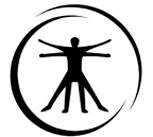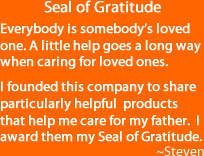 |
24/7 Caregiving Products Company LLC |
 |
|
|
Tai Chi
Tai Chi is ancient and complex, deadly and life saving:
A new medical procedure.
Tai Chi may have started as a deadly martial art, however in the United States interest is growing in the ability of Tai Chi to heal and enhance health, balance, and happiness in people of any age and, almost, any competence - given the ability to follow some instructions and remember some movements. Even for those who must sit while doing, there is benefit in participating with others and following an instructor.
As an overview, the writings and YouTube presentations by Bruce Kumar Frantzis range from the general to the detailed.
Google and YouTube bring many practitioners to our desktop and mobile devices. This is a simple way to compare approaches and find someone with whom you may be comfortable. Suggestion: If you are still able, find a teacher you like, whether in person or on YouTube, take them to the beach, and absorb what they have to offer.
Practice often.
Then, later, when physical activity may be more difficult, this form of exercise and relaxation could be with you much longer.
Just as a place to start, here are some offerings from Bruce Kumar Frantzis:
First is a four part interview from 1987 which was a time when Bruce traveled to China and returned to the United States. He discusses and demonstrates Tai Chi and compares several forms of martial arts. For the most part, this is a dramatic display of the smooth flow of Tai Chi which makes it more accessible, longer.Part 1
Part 2
Part 3
Part 4
Here is Bruce's bio, found on his complex website for Energy Arts.
[Note: I have spent so much time on YouTube and on his websites: Energy Arts and Tai Chi Master that I call him "Bruce". My apologies to anyone who feels that is disrespectful. I do not mean to disrespect you and your feelings about this. But, really, this is between him and me. He put himself out there. I let him in. I think that's what he wanted. But, hey, I could be wrong. If this is very upsetting to you, please have him call me so we can discuss it and dissolve any unnecessary blockages to comprehending the meaning of his messages.]
Bruce is a prolific writer. Here are two samples, one general and one detailed. One putting forth information, the other leading the reader to a deeper and greater understanding.
- A detailed look at the history and processes, the Source Code, of the popular Yang style of Tai Chi.
- The impact of words on an individual can be devastating, wreaking internal havoc resulting in "negative" or "embarrassing" or "wrongful" behaviors. Interestingly, the same words may have a totally different effect or no effect when heard by other people. Bruce writes in a nonchalant style about this subject and leads the reader into a deeper understanding of the internal processes that give a word the power to release so much energy.
Finally, speaking about the release of energy, like a time traveler we see Bruce 27 years after his 1987 four-part interview. He is discussing his recent book, Taoist Sexual Meditation:
Data-driven evidence of the health benefits of Tai Chi
Tai Chi is not just for aficionados of ancient Asian martial arts meditation. While Medical Qigong is a subject Bruce has delved into on his experiential level, the knowledge-bank is expanding with data-driven studies establishing the medical benefits of Tai Chi - from relaxation to the creation of brain matter.
In 3 Ways Tai Chi Trains the Brain Sifu Karl Romain provides a Huffington-Post introduction to the benefits of Tai Chi.
One of his links brings us an NIH study of "Changes in brain volume and cognition in a randomized trial of exercise and social interaction in a community-based sample of non-demented Chinese elders." (cache) Apparently, getting older does not inevitably result in irreversible degeneration.
To me, this holds out hope that an old dog can re-learn old tricks.
Naples Community Hospital's publication of an article about Tai Chi - "It Will CALM You Down" - is the beginning of a bridge in SW Florida between traditional "western" medicine and ancient "eastern" remedies that could encourage medical personnel in well-endowed established institutions to look everywhere for the best practice that may assist an individual patient.
Very recently (4/23/2015) Bruce Frantzis posted a lengthy video reviewing his credentials and expressing concern about the aging population and the ability of future generations to comprehend some of the more subtle aspects of Tai Chi. He insists that Tai Chi does not have to be dummied-down for the elderly: